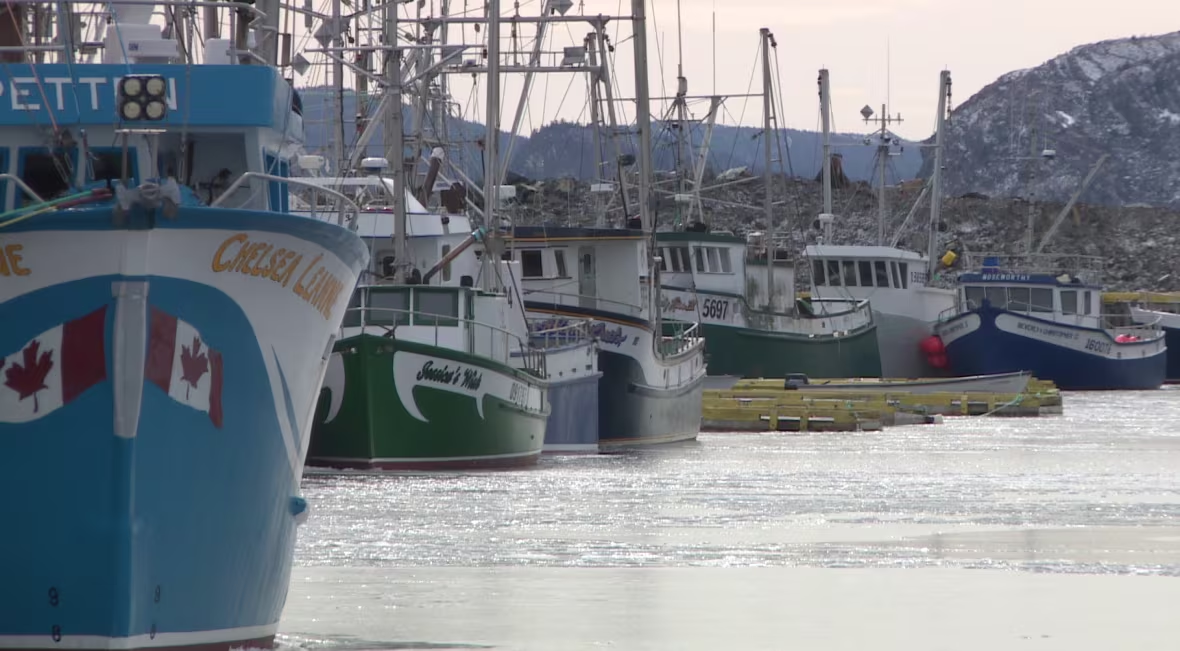Shrimp stock decline 'drastic' for coastal Labrador, says fisherman
'Taking care of the stock, that's paramount,' says Dwight Russell

A fish harvester from Labrador says any cut in shrimp quotas will hurt coastal communities.
- Fishing industry divided on how to handle northern shrimp
- 'This is a crisis': FFAW calls for halt to northern shrimp harvesting
Dwight Russell, who is also vice-president of the Labrador Fishermen's Union Shrimp Company said that if the fishery is closed or curtailed, other businesses — from grocery stores to fuel suppliers — will suffer.
"It's gonna be a big impact on our coast, you know right from trucking, inshore lease gear, manufacturing, supply people," said Russell.
"We're very worried … the fishery is the driver when it comes to the economy in the southern part of Labrador."
The Fish, Food and Allied Workers Union has called for a halt to all northern shrimp fishing because of a federal survey that showed a 40 per cent decline in the shrimp stock in Area 6.

Economic impact
"Last year in August we started to see a decline … so it wasn't a huge shock actually," said Russell.
He said the economy along the coast of Labrador has become more reliant on the tiny crustacean in recent years as prices grew along with quotas.
"Seventy-five per cent of my income came from the shrimp fishery last year because the prices were so high," Russell told CBC's Labrador Morning.
"Shrimp has become a very important part of the small enterprises on the south coast of Labrador, and even northern Labrador, we got boats up there as well because of the price and the value of that product."
'This is drastic'
The Department of Fisheries and Oceans says it will conduct a full assessment of the stock before deciding whether to cut quotas.
"Taking care of the stock, that's paramount," said Russell.
"We can't get the quotas up if science and all the other indicators are there telling us that the stock is going down, so we have to be good stewards of the resource to ensure the stock is there for the future."
Fisheries and Aquaculture Minister Steve Crocker said in a statement Monday that Newfoundland and Labrador's all-party committee on northern shrimp allocations would be meeting immediately to discuss "next steps" to deal with "this serious matter impacting people and communities in all regions of the province".
"This is an urgent matter that demands a unified provincial voice," said Crocker.
"There is a general consensus throughout Newfoundland and Labrador that decisions regarding shrimp allocations should reflect the principle of adjacency and respect the value of both the inshore and offshore fleet sectors; LIFO does neither of these things," he said, referring to the "last in, first out" policy of managing licences.
In the statement, Lorraine Michael, MHA for St. John's East - Quidi Vidi and a committee member, also said the federal government needs to hold true to their election commitment and re-examine the policy
"A dramatic downturn in the inshore shrimp fishery would be devastating to fish harvesters, plant workers and rural communities. The first step in lessening the impact is to abolish the LIFO policy," she said.
The first meeting was set to bring committee members up to speed on the implications of the latest report from DFO and a plan for discussions with the federal government could be made.
Russell is still worried though, about how the industry will weather the cuts.
"There's concern for everybody, this is drastic," he said.
"If the quotas go down like people predict they're going to go down... it's going to be tough on coastal regions not only in Labrador but all over Newfoundland and Labrador. "